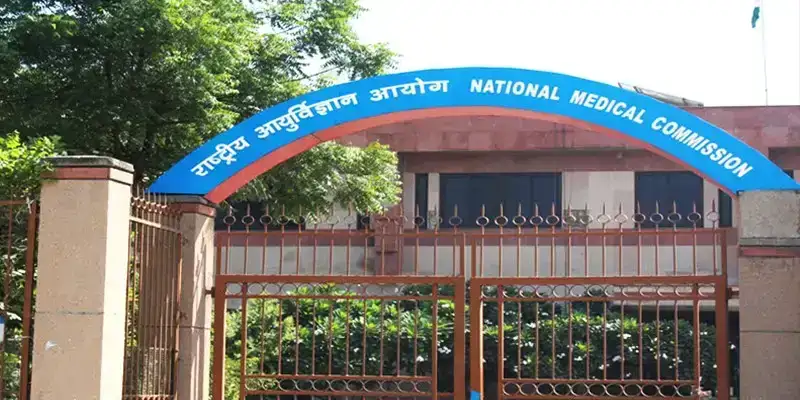
News Desk • July 25, 2025, 12:29 PM IST
New Delhi – In a significant shake‑up of India’s medical education framework, the National Medical Commission (NMC) has unveiled a draft amendment under the National Medical Commission (Recognition of Medical Qualification) Regulations, 2025, proposing a $10,000 (approximately ₹8.6 lakh) recognition fee per qualification for foreign universities or accreditation agencies seeking validation of their medical degrees for use in India @mathrubhumi.
Published via a gazetted draft notification on July 16, 2025, the proposed regulation requires any foreign authority applying for NMC recognition to remit the fee for each medical qualification in a prescribed application format mdresearch.us+13@mathrubhumi+13LinkedIn+13.
🎯 Why this matters
- The move eliminates the earlier mandate requiring Indian doctors to pay an individual application fee of ₹2.5 lakh to validate their foreign medical degrees—a financial relief for aspiring returnees @mathrubhumi+1YouTube+1.
- By imposing the fee on foreign entities rather than individuals, the policy aims to ensure greater accountability of institutions and deter recognition of sub‑standard or unaccredited programs.
👨🎓 Scope and impact
Every year, an estimated 20,000 to 25,000 Indian students pursue MBBS programs abroad in countries like Russia, China, Georgia, and Kyrgyzstan, drawn by highly competitive MBBS admissions in India Wikipedia+10mint+10@mathrubhumi+10.
Currently, graduates from these institutions must clear the Foreign Medical Graduate Examination (FMGE)—soon to be replaced by the National Exit Test (NExT)—to practise in India mint+6Wikipedia+6@mathrubhumi+6.
The $10,000 recognition fee is expected to influence the cost structure of foreign medical education, potentially increasing tuition or administrative expenses in already costly programs, which currently range from ₹18 lakh to ₹48 lakh depending on destination and institution Edufever+2mint+2@mathrubhumi+2.
🌐 Global alignment
The policy aligns with established practices globally: bodies like the World Federation for Medical Education (WFME) and the Educational Commission for Foreign Medical Graduates (ECFMG) in the U.S. levy recognition and evaluation fees—running into tens of thousands—for accreditation of foreign medical programmes and agencies Edufever+1mint+1.
📢 Official rationale
An NMC official explained that the fee is intended to:
“formalise and streamline the recognition process and ensure high medical standards in India” — a quality safeguard rather than mere revenue generation Instagram+10mint+10@mathrubhumi+10.
They emphasize the measure as a way to filter out low-quality institutions and maintain a uniformly qualified medical workforce.
📣 What’s next?
NMC has opened a 30‑day public consultation period inviting objections or suggestions via a dedicated email channel. Experts expect final implementation to occur post-consultation, with details such as timeline, exemptions (if any), and country-specific applicability still to be clarified Edufever@mathrubhumi+1Edufever+1.
🔍 At a glance: Key changes at a glance
| Area | Current system | Proposed amendment |
|---|---|---|
| Recognition fee payer | Indian medical graduate (₹2.5 lakh) | Foreign university or accreditor ($10,000 / ₹8.6 lakh) |
| Target | Individuals applying for validation of their degree | Institutions seeking institutional-level recognition |
| Estimated annual impact | 20,000–25,000 students | Potential trickle-down to students via tuition increases |
| Quality control focus | FMGE/NExT screening examinations | Institutional accountability and adherence to high standards |
This draft marks a pivotal shift in how India engages with foreign medical education. By transferring responsibility and cost to foreign institutions, the NMC seeks to bring robust accreditation standards, align with international best practices, and prioritize quality assurance in medical training. Critics, however, warn it may limit access if smaller but credible institutions are discouraged by the fee.
Stakeholders—students, universities, education consultants—are advised to monitor NMC’s official communication closely as public feedback rolls in.


